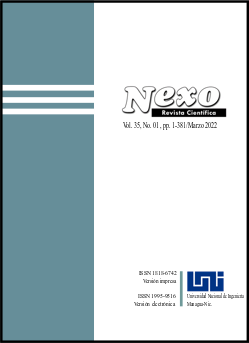Two-parameter model of optimization of the progressive taxation system and its applicability
DOI:
https://doi.org/10.5377/nexo.v35i01.14011Keywords:
social equality, personal income taxAbstract
The work aims to develop a model of income taxation that allows strengthening the fiscal effect of personal income tax and reducing the differentiation of income levels of different segments of the population, as well as assessing the impact of the proposed model on social inequality in Russia. To achieve this goal, a special two-parameter model of progressive income tax was developed, reflecting the result of studying the features of modern Russian taxation in the context of personal income tax. The key advantage of the developed tax model is the ability to assess social differentiation (by income category) in a pairwise subdecile breakdown, which allows the state to conduct a more balanced policy concerning each of the income groups participating in the study, which can be expressed, for example, in granting special tax preferences to decile groups that need it.
Downloads
Downloads
Published
How to Cite
Issue
Section
License
Copyright (c) 2022 Array

This work is licensed under a Creative Commons Attribution 4.0 International License.
The authors who publish in Nexo Scientific Journal agree to the following terms:
- Authors retain the copyright and grant the journal the right of the first publication under the license Creative Commons Attribution License https://creativecommons.org/licenses/by/3.0/, which allows others to share the work with a recognition of the authorship of the work and the initial publication in Nexo Scientific Journal.
- Authors may separately establish additional agreements for the non-exclusive distribution of the version of the work published in the journal (for example, in an institutional repository or a book), with the recognition of the initial publication in Nexo Scientific Journal.
- Authors are allowed and encouraged to disseminate their works electronically (for example, in institutional repositories or in their own website) before and during the submission process, as it can lead to productive exchanges, as well as earlier and greater citation of published works.











